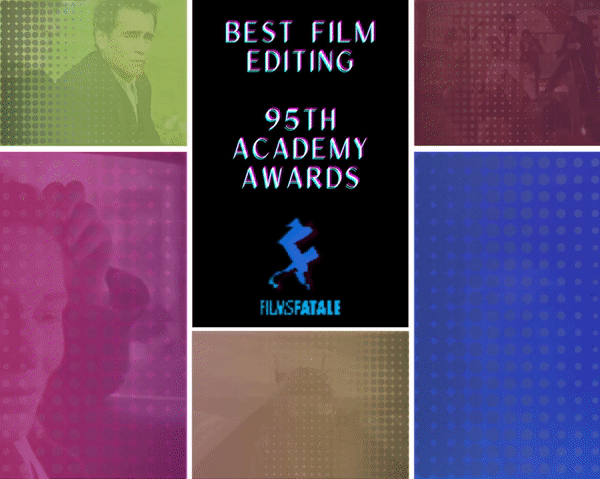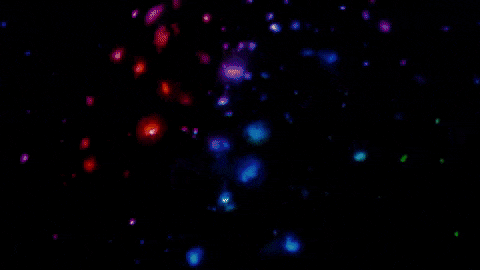Best Film Editing: Ranking Every Oscar Nominee
Written by Andreas Babiolakis
As I always say, the best film editing is almost entirely not noticeable, because a film that is strongly assembled feels fluid. Film itself when it was first made was an illusion, with multiple, static images a second being sped through to mimic the art of movement (in most cases, this is twenty four frames a second), and editing serves a similar purpose: to connect separate elements and leave you unaware of the work that is being done. Mind you, some of the best editors also like to flex their skills with the occasional showboating (montages, dynamic cutting, and other displays of artistry). Additionally, film editing allows these components to tell one unified story. Many things are important to consider when you look at editing; what new information do we get when we get to a new cut; can we follow along with what is going on, or does the editing distract us; does the editing allow the film to breathe, or does it get in the way? Those that don’t over-analyze editing may miss all of these crucial checkboxes, but that’s why we’re going to look at this year’s Oscar hopefuls today as a handful of examples we can observe and learn from. Here are your nominees.
Biggest Snub: Moonage Daydream-Brett Morgan
I will die on this hill: documentaries do not get represented in the Best Film Editing category enough. At all. To be able to assemble so many different pieces of unrelated footage and be able to narrow it down into one cohesive story is an art in and of itself. In Moonage Daydream. concert clips, interviews, and candid recordings of the late David Bowie get turned into a psychedelic fever dream, and the film feels like a series of shifting clouds or coursing rivers in its nature. Two and a half hours zips by. Bowie’s entire legacy is bulleted through, yet without a stone left unturned. Moonage Daydream is a fantastically edited film, and it easily could have been here amongst the other nominees.
5. The Banshees of Inisherin-Mikkel E.G. Nielsen
There is always one film with adequate-to-good editing that winds up in this category, likely because of that particular film’s popularity at that year’s Oscars race. The Banshees of Inisherin is far from badly edited: it actually feels poetically languid in its pacing and neutral in its dynamics. However, if we’re looking at the best editing of the year, I feel like editing that gets the job done with few moments of noticeable effect sadly places it last here. That’s kind of the double-edged sword of film editing: sometimes getting too involved ruins a film, and doing the job exactly as it should be done without tossing in too many gimmicks can make a film that’s well edited like The Banshees of Inisherin come in last in such a category.
4. Elvis-Matt Villa and Jonathan Redmond
I actually think that Elvis has worse editing than The Banshees of Inisherin overall. The entire film feels like a film trailer from the very start, which is a strange quality to have for a nearly three hour picture (or any feature, for that matter). Parts of Elvis also feel like they’re dynamic for the hell of it, and it can be a little much at times. However, there are some moments of the film that do work in favour of the editing style, which is constantly trying to say something. For every moment that doesn’t really work, there are two that stand out because of frantic cutting, precise timing, or flexes that turn the editors, Matt Villa and Jonathan Redmond, into their own showmen putting on a production. Elvis is very hit or miss with its editing, but the hits are worth highlighting in this category.
3. Tár-Monika Willi
While Tár is edited as naturally as possible, I’ve ranked it a bit higher because I love how Monika Willi works with pacing. Single, long shots are allowed to breathe because of how precisely the sequences before and after them are cut and spliced together. Powerful moments with the titular conductor commanding her orchestra are punctuated by Willi’s editing choices. Tár itself feels like a symphony with movements, and it is because of how it is edited that it embodies such a sensation. It’s actually tremendously edited without ever making the editing feel like the highlight of the feature, and its inclusion here is exactly right.
2. Everything Everywhere All at Once-Paul Rogers
The amount of footage being worked with in Everything Everywhere All at Once is staggering, and it is all used perfectly. Insanely quick montages of a plethora of different timelines turn into strobe-like marvels. Connecting multiple universes via seamless editing creates the illusion that we are leaping through realities without any glitches. Every new shot is telling us something new, even in a film that could have been an overload of information; these shots also end precisely when they should. The many stories going on at once all coincide magnificently. And then there are the moments that allow us to breathe (the rock sequence is a great example). The editing of this film is actually extraordinary. If it wasn’t for one other film, I believe Everything Everywhere All at Once would run away with this award.
Cameron Geiser’s review of Everything Everywhere All at Once
1. Top Gun: Maverick-Eddie Hamilton
And then there was Top Gun: Maverick. Even at its most neutral, Top Gun: Maverick feels compelling almost exclusively because of its editing: it outshines the nostalgia-ridden story and cookie-cutter exposition and propels the film forward. When we get into the cockpit and soar the skies above, Eddie Hamilton’s editing is truly something to behold. The way he is able to take so many shots (close ups, wide shots, and everything in between) with so much action going on still make sense is mind boggling. If anything, I could only follow what was going on because the editing guided me through these sequences, as if it placed us in the right vantage points at exactly the right microseconds. Not only is this editing captivating in a storytelling sense, it feels breathtaking and exhilarating. I’ll sound like a real dork, but it is the film editing that got me more emotional than any of the story in Top Gun: Maverick did. It’s a thing of beauty.
Cameron Geiser’s review of Top Gun: Maverick
Who I want to win: If Top Gun: Maverick doesn’t claim this award (which it likely will), I think some love for Everything Everywhere All at Once or Tár feels warranted.
Who I think will win: The editing in Top Gun: Maverick had me choked up. I think it’s clear. Shut up.
Tune in Monday for our next Academy Award category! We’re reviewing every single nominee on every weekday.
Andreas Babiolakis has a Masters degree in Film and Photography Preservation and Collections Management from Toronto Metropolitan University, as well as a Bachelors degree in Cinema Studies from York University. His favourite times of year are the Criterion Collection flash sales and the annual Toronto International Film Festival.









